Brandalism Street
I started practicing Brandalism before there was a word to explain what Brandalism was. Initially, I began writing on advertisements with phrases that contradicted media society. Gradually, I started creating graphic interventions on the faces of models in billboards, making abstract shapes that I likened to “sores,” as if a brand were synonymous with the corruption hidden behind the world of advertising.
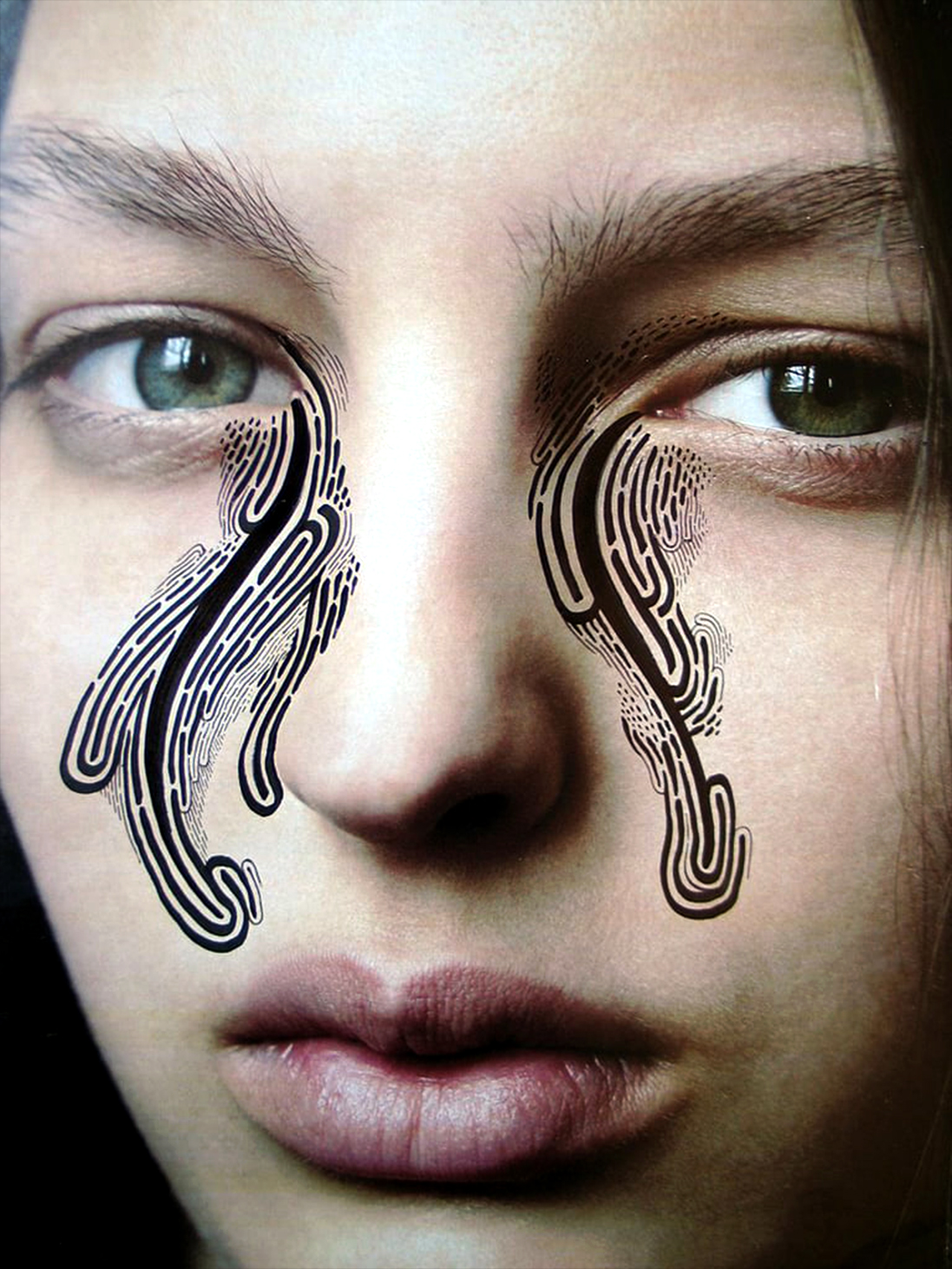
Roadside Advertising . Private Collection _ 2007
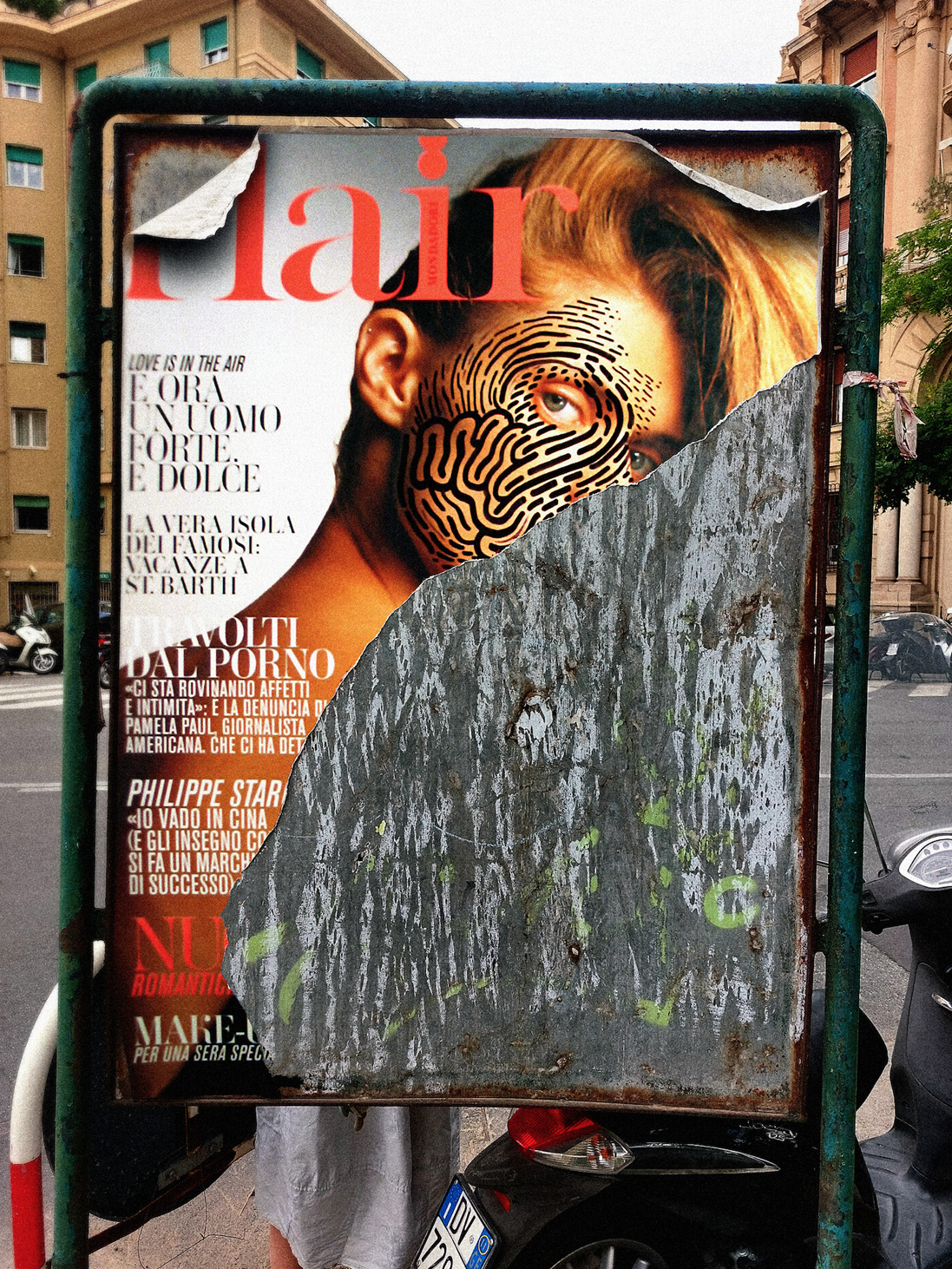
Roadside Advertising _ 2006

Roadside Advertising _ 2007
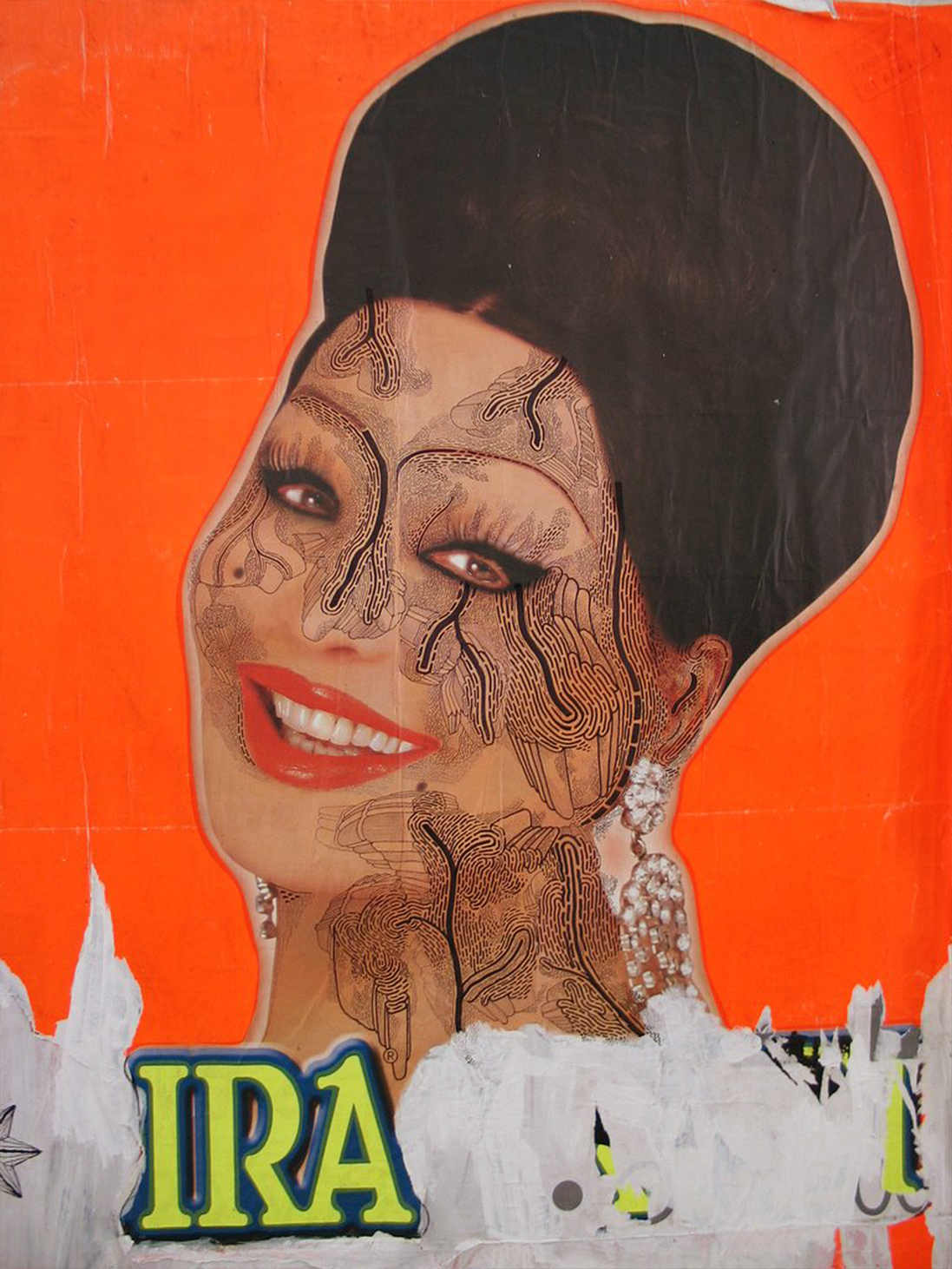
Title: MoIRA – Roadside Advertising . Private Collection _ 2006
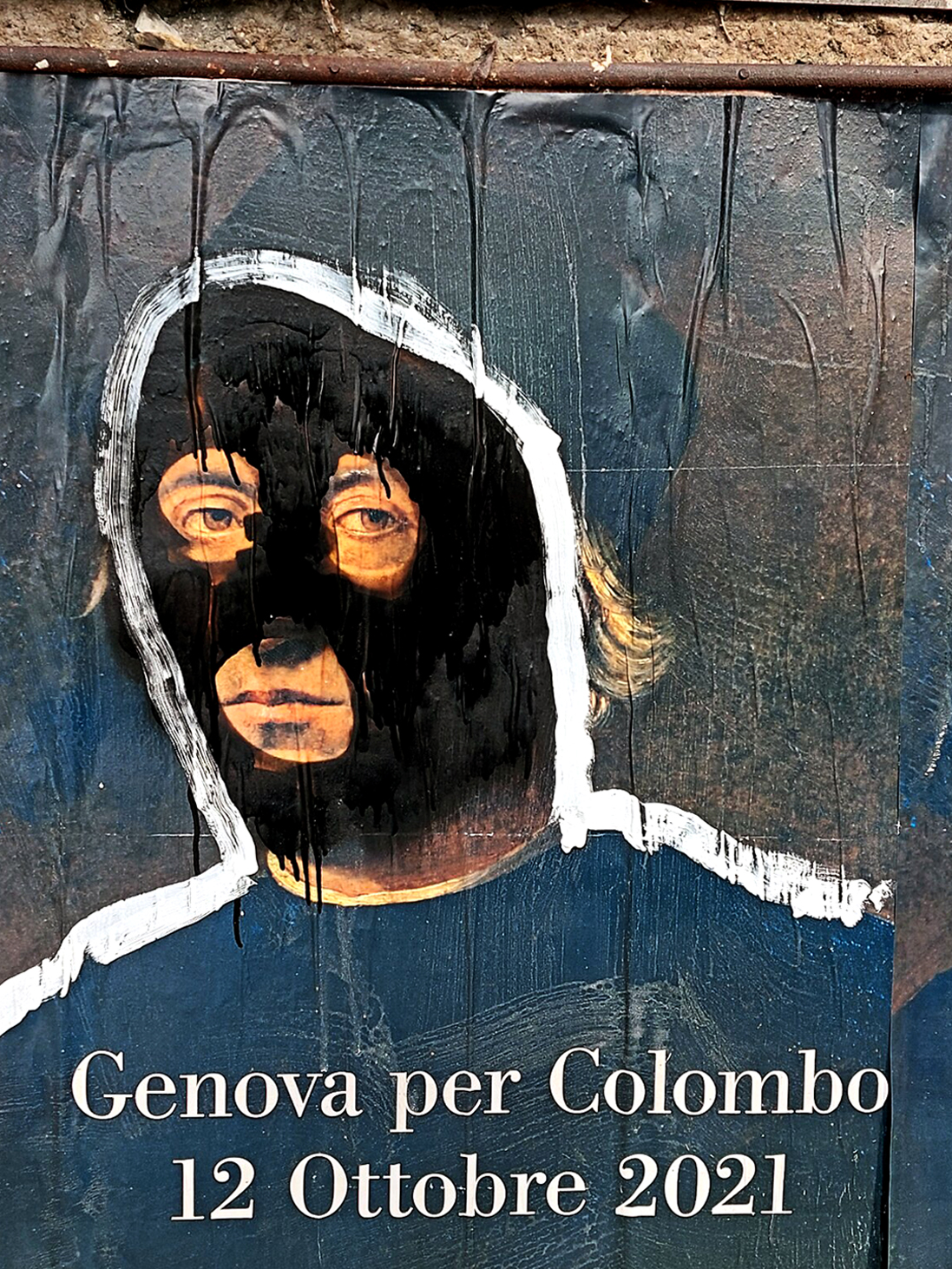
Title: Give Me Your Land! – Roadside Advertising . Private Collection _ 2021
The artwork “Give Me Your Land” reinterprets Christopher Columbus with a balaclava, transforming him from an explorer into a symbol of exploitation and predation. This unconventional representation highlights the dark side of colonialism, linking the balaclava to concepts of crime and invasion, typical of colonial forces. The title of the work invites the audience to recognize the violent appropriation of native lands, emphasizing the devastating legacy left by Columbus. By employing post-vandalism and brandalism, it alters the romantic narrative of the hero, instead offering a raw and critical view of colonial conquests. The artwork compels reflection on the lasting impacts of colonialism and the importance of a complex understanding of history that embraces both successes and failures. In summary, “Give Me Your Land” is a strong critique of Columbus’s legacy and the mechanisms of exploitation associated with exploration.
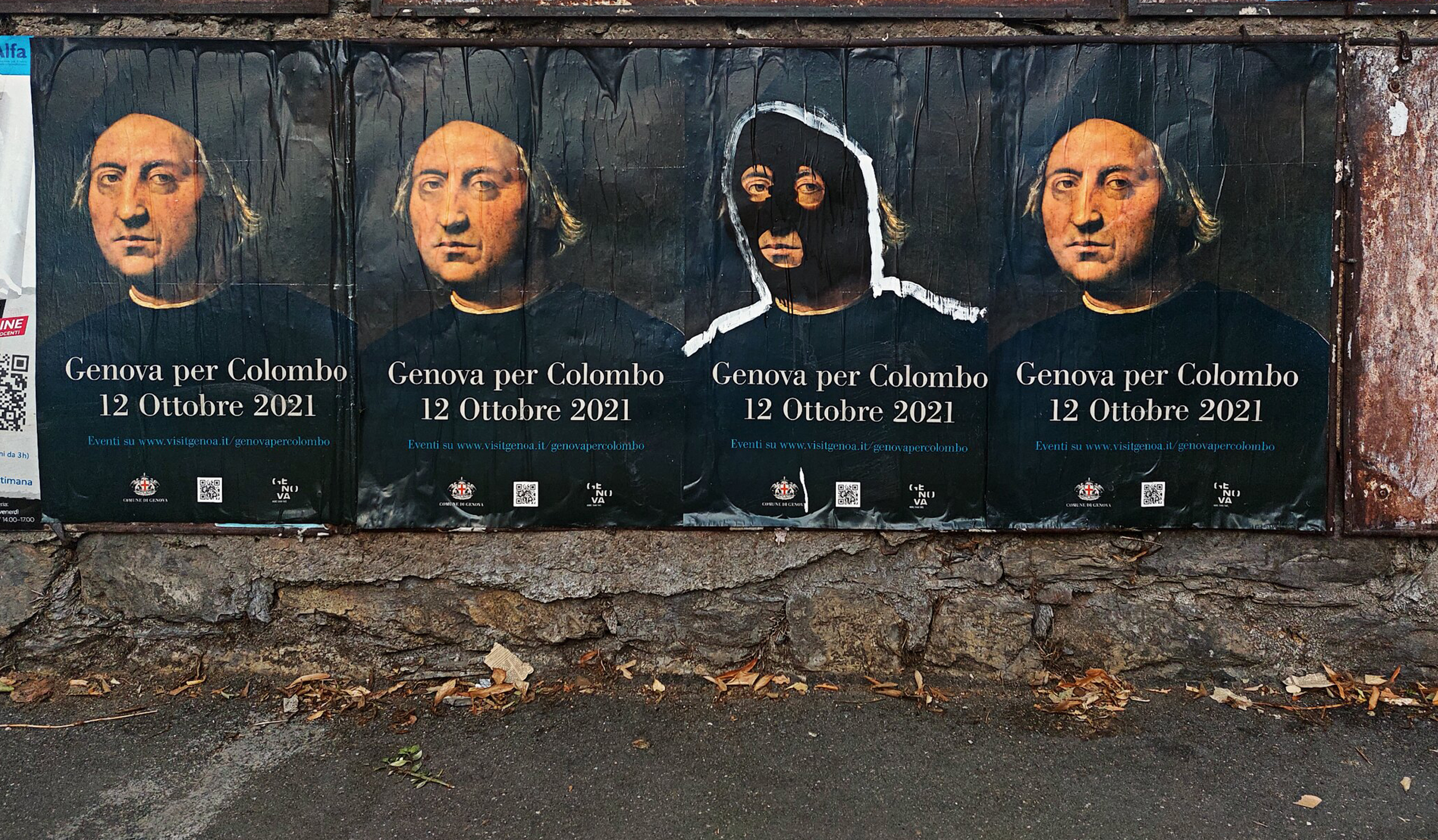
Title: Give Me Your Land! – Roadside Advertising . Private Collection _ 2021
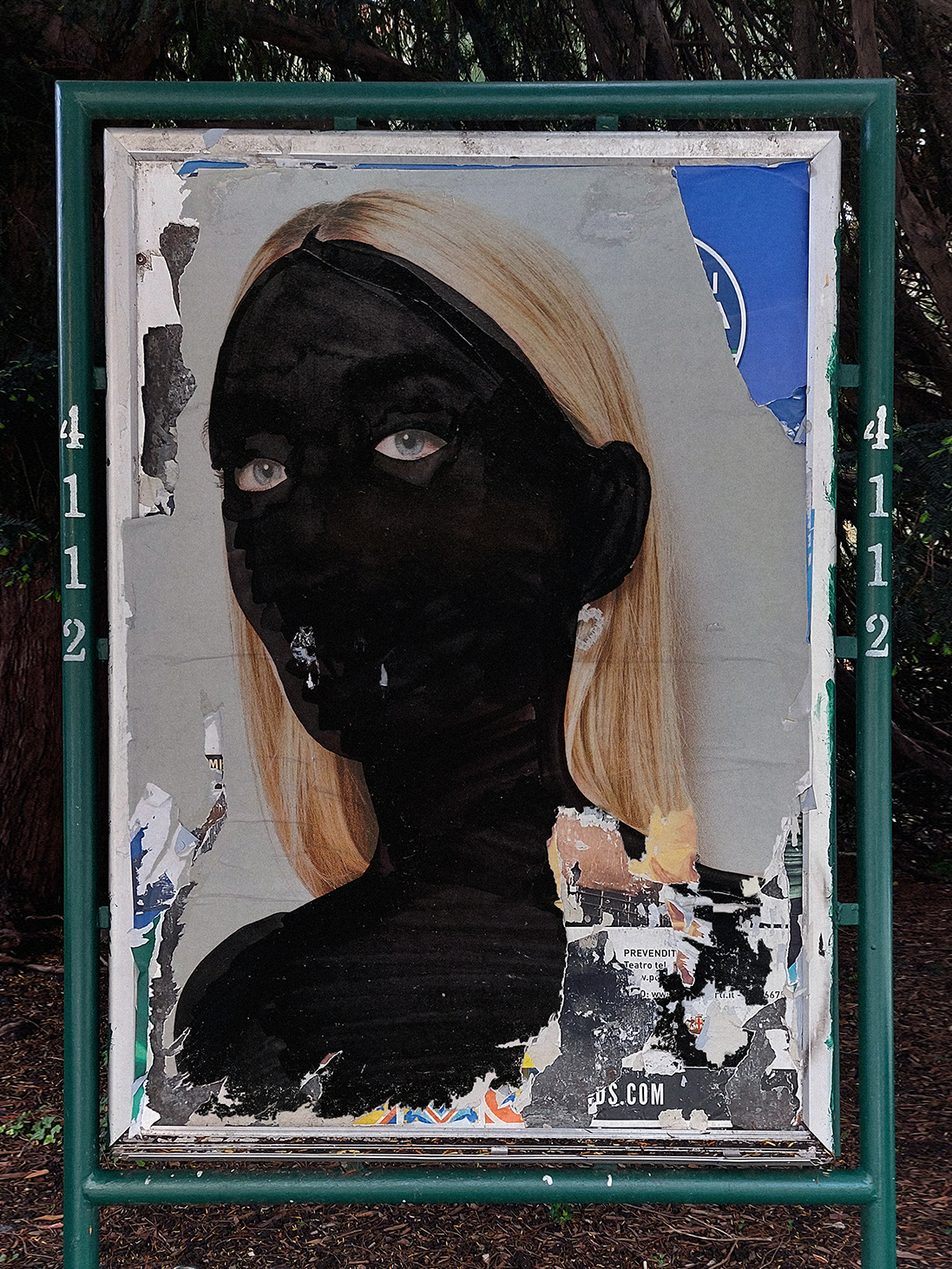
Roadside Advertising _ 2024
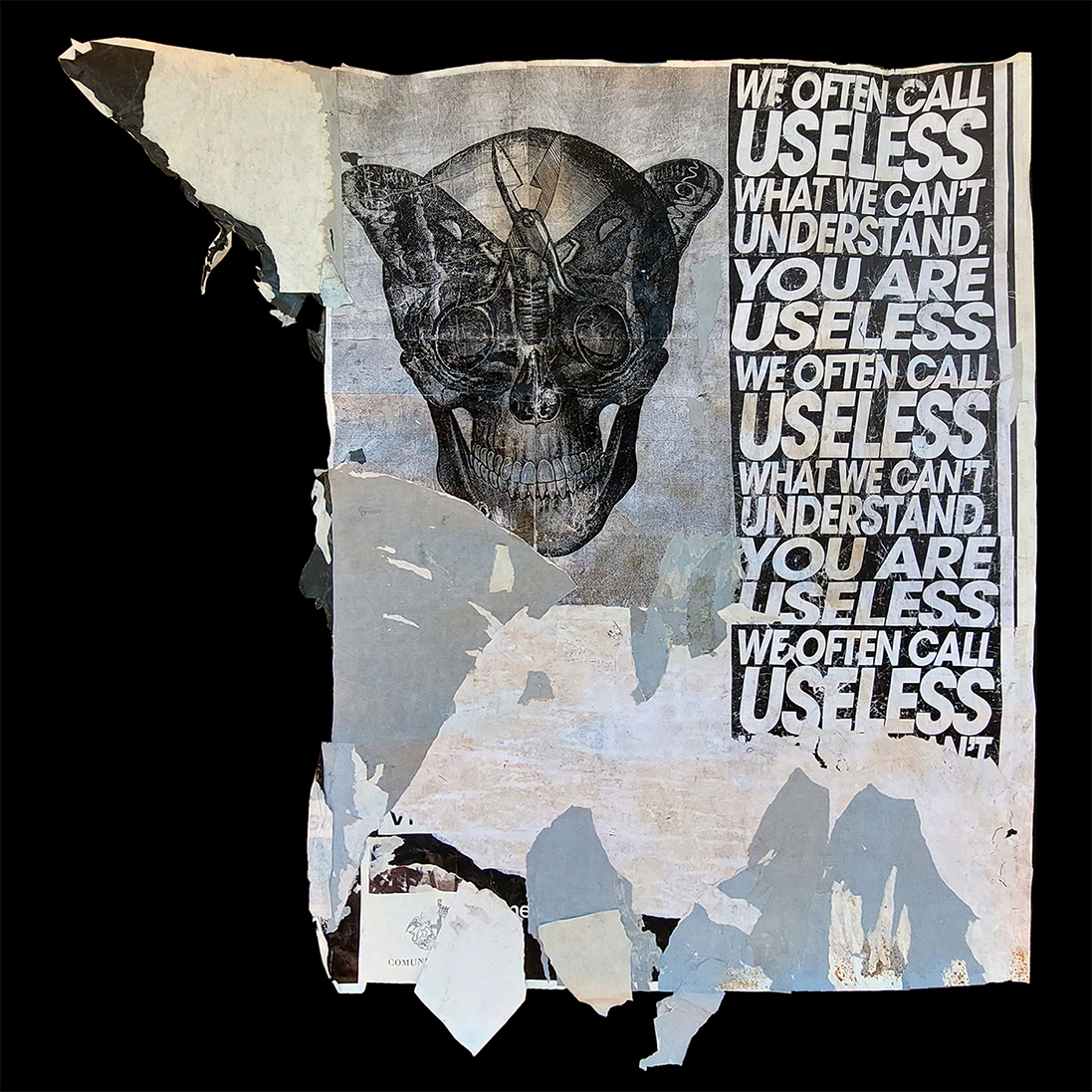
Poster Propaganda – Roadside Advertising . Private Collection _ 2000
In the early 2000s, influenced by communication studies, I began to engage in poster campaigns featuring “subversive” or “reflective” phrases such as “We often call useless what we can’t understand” or “You are useless.” These phrases relate to the meaning behind my nickname “Useless Idea,”. This intended to express the idea that what we often deem unimportant not is, in fact, useless, reflecting my discomfort with society a sentiment that was further emphasized by the historical context. “Useless” can be understood as an anti-hero, as an anti-communication, anti-brand, and yet, at the same time, a brand in itself.
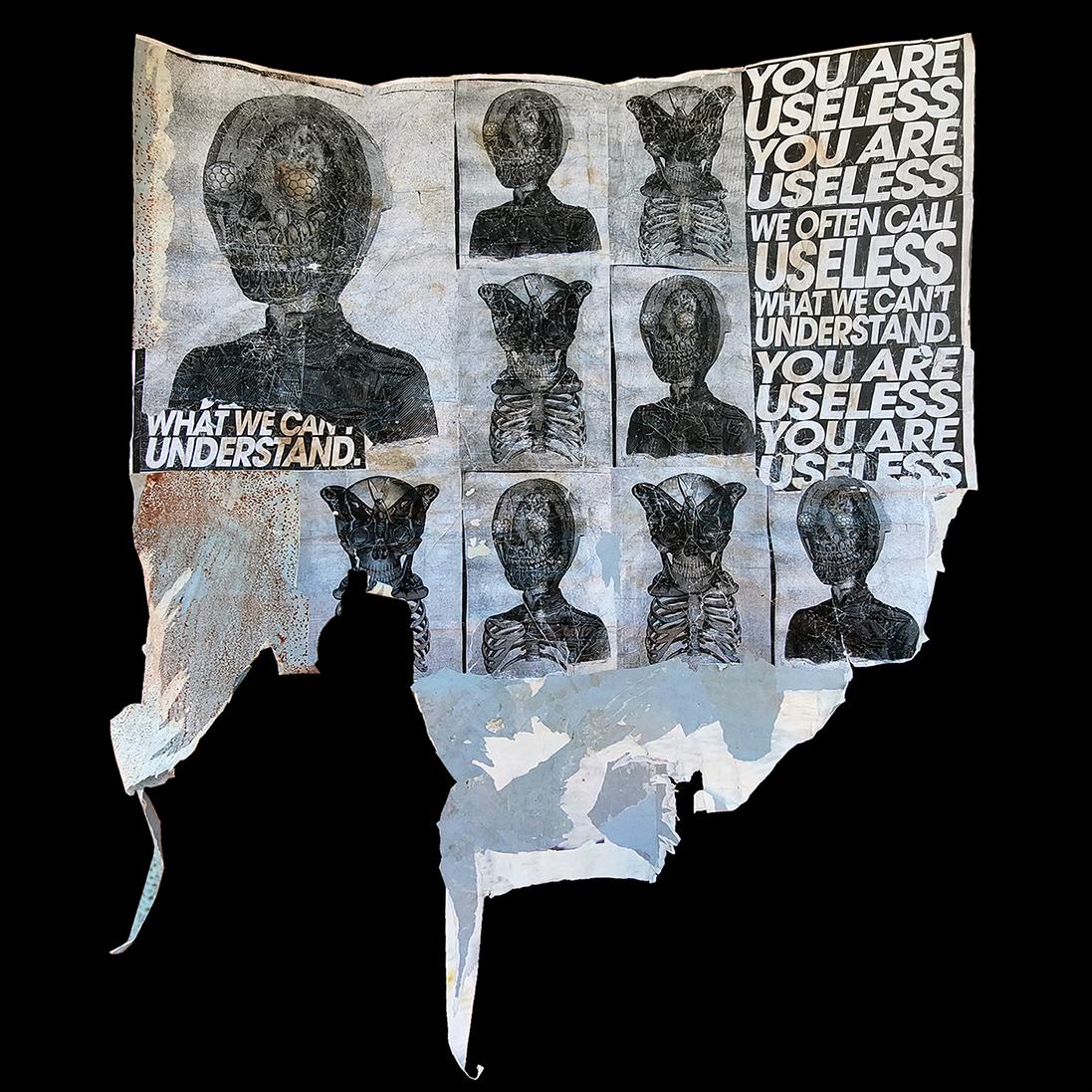
Poster Propaganda – Roadside Advertising . Private Collection _ 2001
The poster was the turning point that made me admire the allure of decay, with its wear and perishability. Thus, I began to modify my style, abandoning the “personal,” precise, and geometric approach for which I was known, embarking on an instinctive “pictorial” journey that appeared raw. In this, I saw the expressive freedom of the unruly attitude that street art, in my opinion, should manifest. This feeling became increasingly evident when the phenomenon of Street Art gained popularity in the late 2000s, along with my growing distance from the label of street artist, which by then encompassed illustrators, architects, and anyone seeking to capitalize on the excitement for profit. As the aesthetics surrounding my interests became more tamed, I moved in the opposite direction.
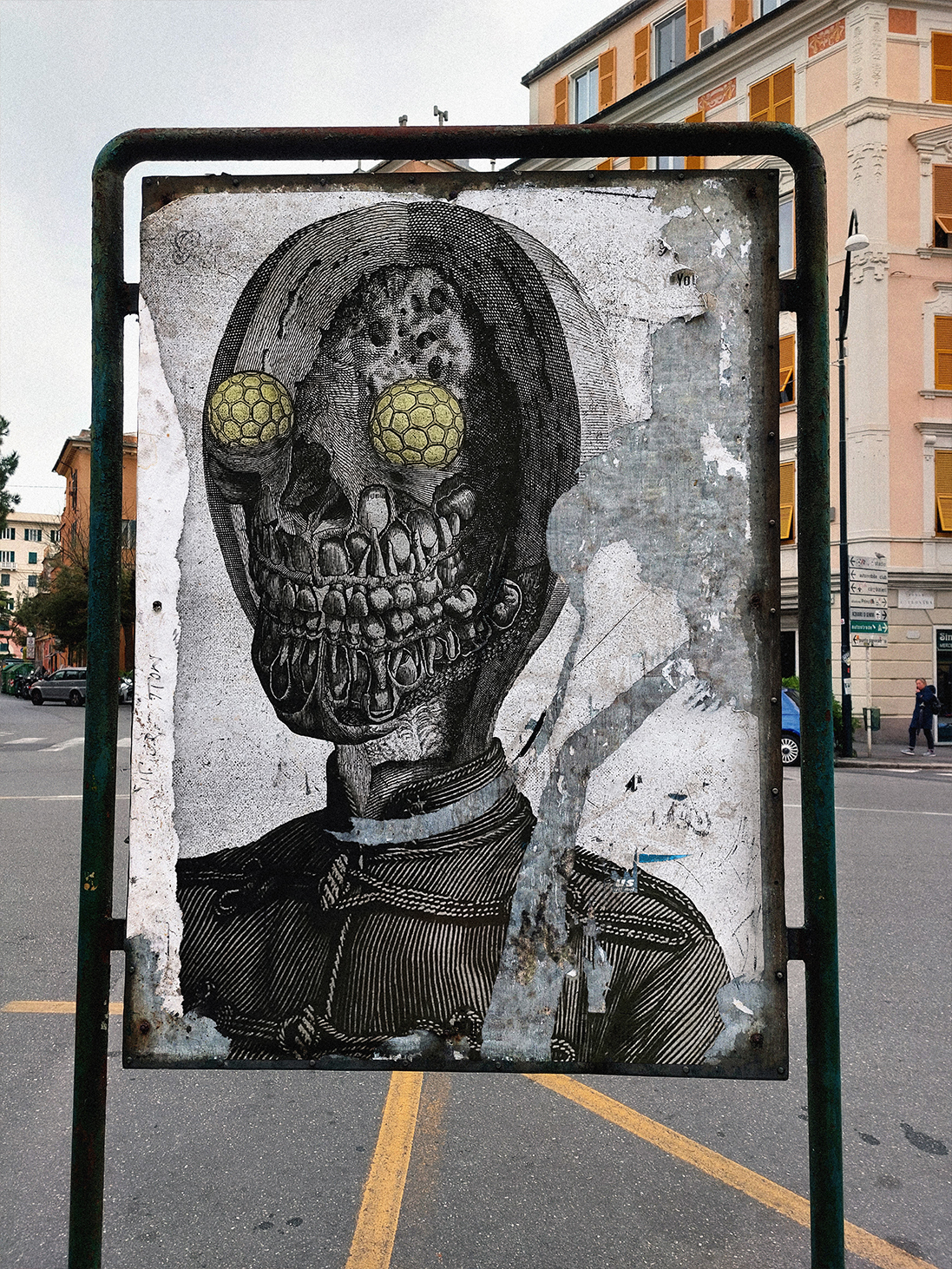
Roadside Advertising _ 2005
In 2001, the Twin Towers collapsed, catapulting my generation and society as a whole into the oblivion of crisis—a crisis not only economic but also social, cultural, and of faith. This context, characterized by slogans, optimism, international conspiracy theories, and socio-political-cultural crises, significantly influenced my aesthetic and my imagination, not only visually but conceptually. I understood that in the era of globalization and the emerging (global) internet, my work needed to expand across multiple levels and media that society provided. This contributed to a further counterposition against the nascent Street Art scene of the late 2000s, which tended to showcase a more popular, illustrative, and easily digestible language. As a result, my imaginative vision became increasingly “difficult” and anti-commercial.
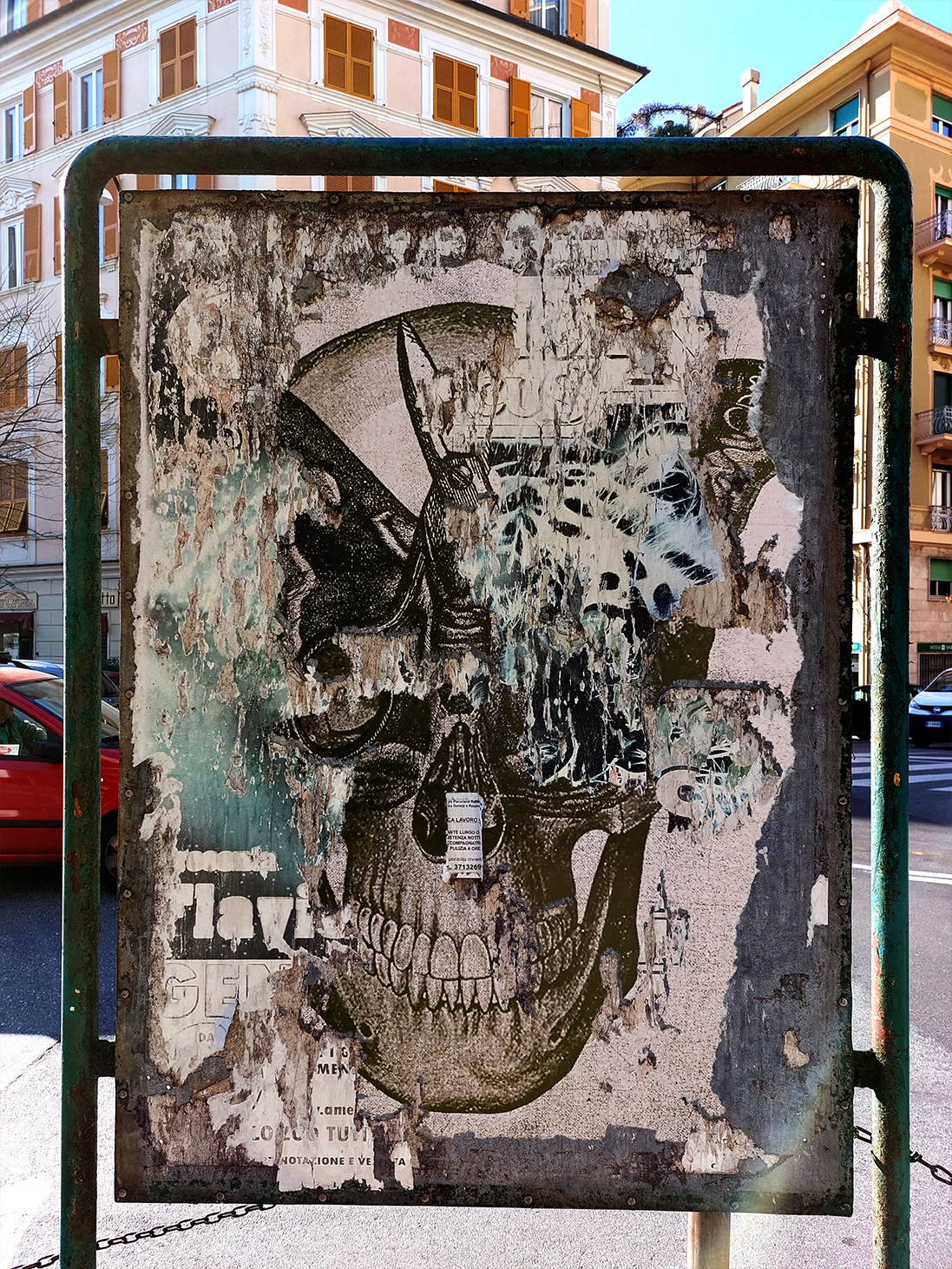
Roadside Advertising _ 2004
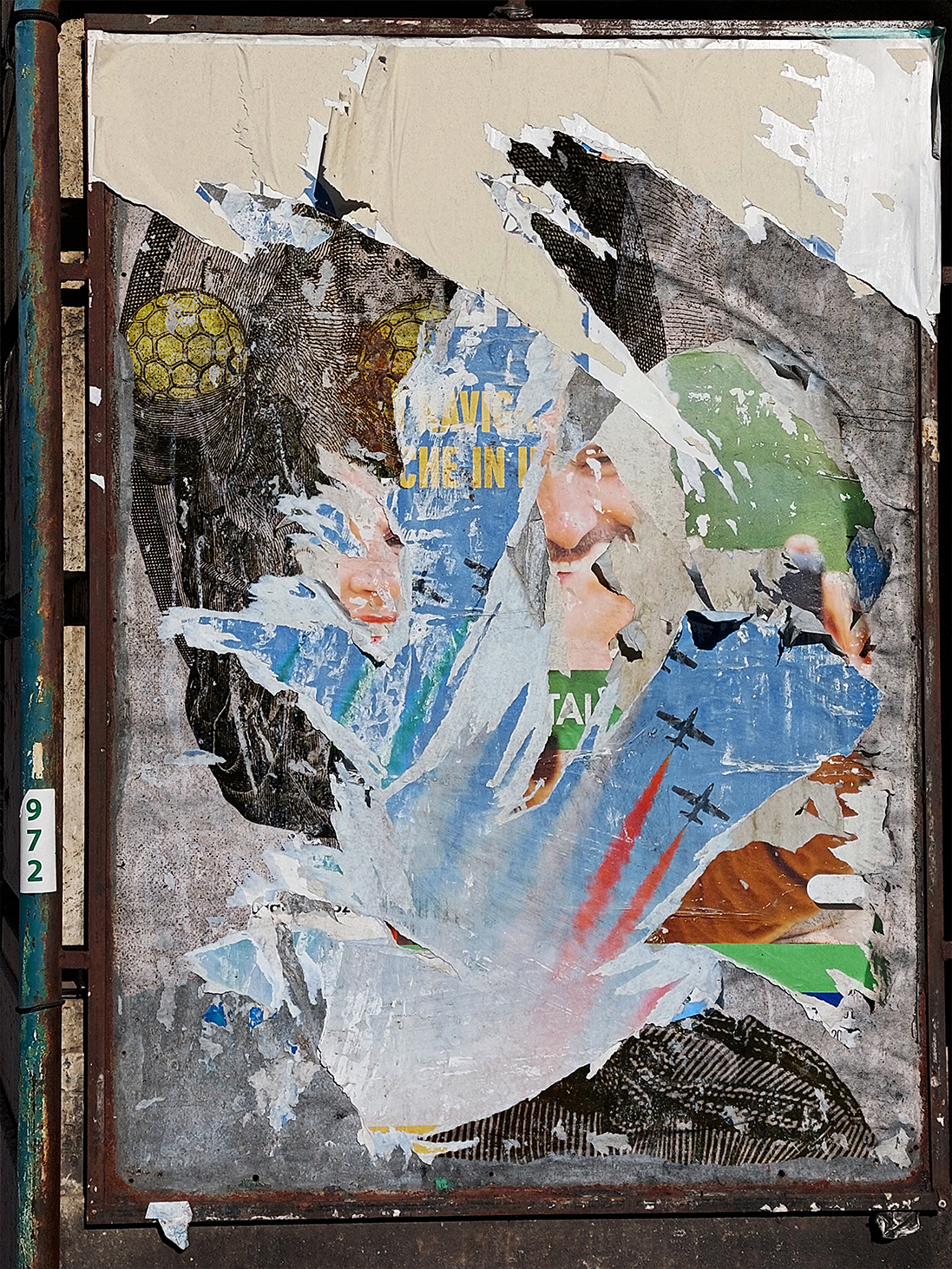
Roadside Advertising _ 2004
